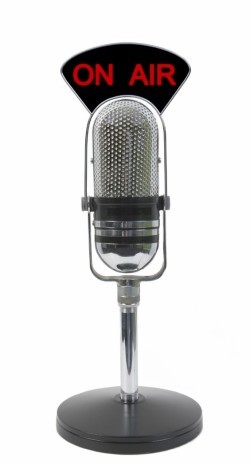Arlene Miller's Blog, page 52
February 23, 2016
Cake, Prizes, and Fun with Words
I hope you will be able to join me this Friday evening, February 26, at 7 p.m. at the Petaluma Copperfields on Kentucky Street. I will be launching my newest book, Fifty Shades of Grammar, with a talk about where grammar comes from and why we need it. Then, I will read some scintillating parts of the book. There will then be prizes and chocolate cake. Who could ask for more? What a way to spend your Friday evening! And it is all free! Support your indie bookstores and our local authors!
Join Me!
February 20, 2016
Go Slow: Flat Adverbs Ahead
 http://www.thinkstockphotos.com
http://www.thinkstockphotos.comPhoto by Egal
Flat adverbs? Is this yet another grammatical thing we need to know about? Well, yes and no, but it isn’t difficult.
Let’s start at the beginning. Adverbs are the part of speech that “describe” verbs. They usually tell how or when or to what extent. And they can also describe adjectives or other adverbs. And to review, adjectives are the part of speech that usually describe nouns (or pronouns), telling what kind. Here are some examples of adverbs:
He talks quietly. (Quietly is an adverb that tells how he talks.)
We will leave soon. (Soon is an adverb that tells when we will leave.)
He talks extremely quietly. (Extremely is an adverb describing another adverb – quietly – that tells to what extent.)
She is really pretty. (Here, really is an adverb describing the adjective pretty, telling to what extent.)
You have probably noticed that many (probably most) adverbs end in -ly, especially the ones that tell how or to what extent (as opposed to the ones that tell when, like now, then, soon, and later).
Now, there are also some other words that end in -ly, mainly some adjectives like lovely, lonely, and daily.
So, not all adverbs end in -ly, and not all words that end in -ly are adverbs.
Now, what does this have to do with flat adverbs, and what are they anyway?
Okay. Many of the adverbs that end in -ly are created from the adjective, which has no -ly:
quiet is an adjective (quiet house), but quietly is an adverb (talk quietly).
soft is an adjective (soft blanket), but softly is an adverb (speak softly).
quick is an adjective (quick bunny), but quickly is an adverb (run quickly).
slow is an adjective (slow turtle), but slowly is an adverb (drive slowly).
You get the idea.
A flat adverb (finally!) (oh, and final is an adjective, and finally is an adverb) is an adverb without an -ly at the end.
Soon, now, then, later, too, very . . . adverbs with no -ly. Easy.
But that is too simple. How about these sentences?
Drive slow because the roads are slippery. (Should it be slowly?)
You went fast through those curvy roads.
You need to come clean about what really happened.
Stay close to me as we walk through the crowd.
He hit the ball really hard.
Let’s talk about those flat adverbs:
Drive slow. Well, you could also have said drive slowly, so is drive slow okay?
You went fast. Well, there is no fastly. Fast is both an adjective (fast car) and an adverb (drive fast). There is no -ly form at all of this flat adverb.
Come clean. Here is an adverb where the -ly form is used differently than the flat form. The wound healed cleanly is fine, but you wouldn’t say come cleanly. We just don’t use it that way.
Stay close. Stay closely doesn’t make sense. However, follow closely does, so the flat adverb and the -ly form are used differently in this case.
Hit hard. That makes sense. But if you say hardly hit, well, that is really the opposite. So, in this case the flat adverb and the -ly form are opposites!
Flat adverbs used to be more common. Now, if we can use the -ly at the end, we tend to. For example
The moon is shining brightly – instead of shining bright.
Drive slowly through the storm – instead of drive slow through the storm.
Run quickly until you get to the other side of the street – instead of run quick.
So, if you can use the -ly version, it is probably best.
However, you have seen that in some cases the flat adverb and the -ly version have different uses, which is fine (stay close and follow closely, for example). In other cases, they are complete opposites (hit hard and hardly hit), which is also fine. In those cases, using the flat adverb is perfectly fine.
Rule of thumb: If there is an -ly version of the adverb that has the same meaning as using it “flatly” (is that even a word, or did I just make up a new adverb? She sings flat! Not flatly!), use the -ly version, as it is more common these days. If the flat adverb says it best (bestly?) use a flat adverb.
News:
Yesterday, Joel Friedlander, self-publishing expert, published a guest post of mine on his popular blog. Click here to see it.
I did an interview for KRCB radio about my upcoming event at Copperfields. I will post it when it is broadcast next week. It’s about – what else – grammar!
Speaking of Copperfields . . . if you live in the area, I really hope to see you on Friday evening, February 26, at 7 p.m. at the Petaluma Copperfields for the official launch of Fifty Shades of Grammar. In addition to reading parts of the book, I will be talking briefly about where grammar rules come from and why we need them. There will, of course, be cake and prizes.
signing off for this week . . .
The Grammar Diva
February 19, 2016
Writers: Copyediting Doesn’t End with Your Manuscript! Guest Post
Here is a guest post I wrote for Joel Friedlander’s blog. Joel is the go-to person for self publishing, so you should definitely check out his website!
February 15, 2016
Avoiding Jargon
This is a good article on avoiding jargon in your business writing:
February 12, 2016
What Is Love? The Annual Valentine’s Day Post
 I was going to give you some nice quotes about love — and I still will — but then
I was going to give you some nice quotes about love — and I still will — but then  I thought I might write something a little more personal . . .
I thought I might write something a little more personal . . .
I have been in love two — maybe three — times in my life. So, love, to me, isn’t that frequent an occurrence. And we probably all have our own definitions of what romantic love is. To me, it is when a piece of your heart still belongs to that person no matter how many years have passed. Obviously, other things are involved, but that is how I can tell the “love” relationships from the others. There is no better feeling than being in love — and sometimes no feeling that is worse.
But I have some questions:
There is a difference between “loving” and “being in love.” What is that difference?
What is chemistry? Is it merely physical attraction or is it something more? Can you have chemistry without physical attraction?
Why is it that we so often “love” those who don’t return our feelings? And we don’t return the feelings to those who “love” us? And can it be love at all if it is one-way only?
Is love the same at 60 as it was at 20? 30?
Can you love two people at one time?
Is there such a thing as a soulmate? And do we each have just one soulmate somewhere in the world?
Are there really lots of people we can be in love with? Only a few? Or does it vary depending on who we are? And if it depends on who we are, what is it about us that makes that true?
Is there anything to the “law of attraction”?
For a long-term relationship is “being in love” necessary — or may it even be detrimental?
Is the state of “being in love” temporary? Does it sometimes turn into love and sometimes not?
Can you be married and “fall in love” with someone else, and if you do, what do you do?
What is the difference between being “in love” and being “in lust”?
Well, enough of my questions. If you have any “answers” or opinions about any of my questions, please do comment!
———————–
 I have a book called Be Gentle with Me for I Love You As I Love the Sun. I have had this book since high school or college, and I have kept it, ragged as the cover is now (it is a small hardcover book). I just love the quotes in it. Here are some of my favorites. (Punctuation is not mine,, but is taken directly from the quotes.)
I have a book called Be Gentle with Me for I Love You As I Love the Sun. I have had this book since high school or college, and I have kept it, ragged as the cover is now (it is a small hardcover book). I just love the quotes in it. Here are some of my favorites. (Punctuation is not mine,, but is taken directly from the quotes.)
The supreme happiness of life is the conviction that we are loved — loved for ourselves; say, rather loved in spite of ourselves. – Victor Hugo
I find as I grow older that I love those most whom I loved first. – Thomas Jefferson
There can be no deep disappointment where there is not deep love. – Martin Luther King
Think not that you can direct the course of love, for love, if it finds you worthy, directs your course – Kahlil Gibran
He is not a lover who does not love forever. – Euripides
Love at best, is giving what you need to get. – Rod McKuen
We are all born for love; it is the principle of existence and its only end. Benjamin Disraeli
We seldom think how much we owe our first love. – Goethe
The way to love anything is to realize that it might be lost. – G.K. Chesterton
To love is to become not as a single tree with one root, but as two intertwining vines. – Jay Foster
The love that lasts the longest is the love that is never returned. – Somerset Maugham
You don’t love a woman for what she says, but love what she says because you love her. – Andre Maurois
I have loved many but I’m not sure if I have ever been loved. – Marilyn Monroe
Familiar acts are beautiful through love. – Percy Bysshe Shelley
I’ve fallen in love with you. I’m taking it badly. – Noel Coward
Many waters cannot quench love, neither can the floods drown it. – Solomon 8.7
Love hasn’t any windows to see through, but so many doors to walk out of. – Rod McKuen
 All you need is love . . . -Lennon/McCartney
All you need is love . . . -Lennon/McCartneyNews:
There will be a Goodreads giveaway of my book Trashy Novel from February 15 to February 22, so sign up on Goodreads to enter! You cannot enter until February 15. This is a giveaway of the print book.
Save the Date: I will be speaking and reading from Fifty Shades of Grammar at its official launch at Petaluma Copperfields Books on Friday evening, February 26, at 7 p.m. Please join me for word fun, cake, and prizes.
Happy Valentine’s Day from The Grammar Diva!
February 7, 2016
A Little Grammar Humor
February 5, 2016
How English Became English and Not Latin
February 4, 2016
TV and Radio Hosts: Get Your Grammar Right!
 Should radio and TV hosts have good grammar?
Should radio and TV hosts have good grammar?I watch CNN quite a bit . . . and now that it is election season, I also watch MSNBC. Add to that a fair amount of talk radio while I am working. Now, these people are getting paid to talk . . . although it seems as if they are really being paid for what they are saying rather than how they are saying it (i.e., their grammar). Now, don’t get me wrong. Their grammar is pretty darn good, as is the grammar of the many political pundits and other guests they talk to (well, most of them).
However (you knew there was going to be a BUT), there are a few things I have been hearing lately that are driving me nuts.
1. Less and fewer is still a mystery to many. Or maybe they know the difference, but are talking too fast to really think about it, and less slips out instead of fewer. I hear it all the time: There have been less accidents this year than last year.
2. The use of I versus me is doing pretty well. I do hear me used correctly, for example, after a preposition. However, I do hear the me coming before the other person quite often: He talked to me and the senator.
3. There is used instead of there are is still an issue. I keep hearing there is used with a plural: There is many reasons why the polls are incorrect. Or more commonly, the contraction: There’s many reasons why the polls are incorrect.
4. Here’s an interesting one that I keep hearing over and over again. I have never heard it before quite recently. And I just looked it up in the dictionary because I thought maybe something had changed: This candidates views are very concerning to me. I have not heard concerning used that way before. In that usage, concerning is an adjective. Concerning, however, is not an adjective. Concerning can be a preposition: I heard a conversation concerning the election. Or it can be a verb, a form of concern: This debate will be concerning the war. And concern is also a noun: This is a great concern of mine. Adjective? No. Why not say, This is of concern instead of, This is concerning. Or This concerns me.
But I don’t just have criticism. Sometimes I hear who and whom actually used correctly – and I know the speaker actually knows the different because he or she uses them both in the same sentence: Who is talking to whom? I give kudos to MSNBC’s Chris Hayes for knowing the difference! And Rachel Maddow seems pretty knowledgable about grammar too. However, not mentioning any names, a couple of those guys on CNN, who got hired for their looks or relatives, need a little practice. I keep meaning to send them a copy of my books!
Next week — well, I guess it will be time for a Valentine post . . .
Please check out my books on Amazon and Kindle by clicking the Amazon link on the right. Thanks!
Mark Your Calendars: I will be reading from Fifty Shades of Grammar at the Petaluma Copperfields on Friday evening, February 26, at 7 p.m. There will be laughter, cake, and prizes. It is all FREE, and the book will be available at a discount.
February 2, 2016
The 8 New Rules Of Modern Grammar And Communication
I saw this post and loved it! Here is the link.
http://www.huffingtonpost.com/laurie-levy/new-rules-of-modern-grammar_b_9038446.html
January 29, 2016
Enough Technology Already!

 Drones . . . driverless cars . . . women who can become pregnant when they are 70!
Drones . . . driverless cars . . . women who can become pregnant when they are 70!
Do we really need drones? Perhaps they are useful in taking photos and videos of wildfires, but for what else? Novices and those who can’t follow the rules may fly them too high, and some drones can get in the way of commercial aircraft. Don’t we have enough issues with commercial aircraft? And at some point, Amazon is hoping to deliver with drones. Do we really need our package in 30 minutes? Jeesh! Isn’t a day or two fast enough? Isn’t Amazon Prime good enough?
Driverless cars? Well, I guess increased safety is the reason behind the driverless car, but many of us actually like to drive. I cannot picture a freeway full of driverless cars . . . I picture a Disneyland ride. What will we be doing when our cars are driving themselves? Playing with our cellphones? Watching a movie? What about race car drivers?
I heard on the radio a couple of days ago that researchers were working on a way that women up to 70 years old could get pregnant. I don’t know about you, but I think that is a very bad idea for obvious reasons. To me, this is an extreme waste of research money. I would like to see all this money go for cancer research, wouldn’t you?
Progress is a given. First there was fire. There was the wheel. There was the printing press. There was the electric lightbulb. We cannot imagine being without any of these. We are always striving to improve things. There was the telegraph. There was the telephone. I remember the old telephones with rotary dial and party lines. Then there were private lines. Then there were pushbutton phones rather than rotary dial. There were those fancy-shaped princess phones, and they came in pink, and not just black. Then there were wall phones in beige to match your kitchen. Then, cordless phones replaced those nice long curly wires. Then these big carphones, which became big cell phones, which became small cellphones, which became big (but thin) smartphones.
But there is often a tipping point. We all have computers, and students can find out anything by searching Google. Schools are aiming at one-to-one devices, so every student has a device. Keyboarding has replaced cursive instruction. E-books are popular (although not as popular as expected because, often, people like print books). However, numerous studies show the importance of cursive writing for brain development, the improvement in retention when something is written down rather than typed out, and the many issues with increased screen time: eyestrain, lack of social skills, lack of physical activity, and the list goes on.
Education is constantly striving for improvement . . . No Child Left Behind, Race to the Top, Common Core, and whatever is next. But long-time teachers will tell you that the same things keep coming and going in cycles, packaged in different words with different technology.
Another case of a tipping point: Food has become convenient. While our grandmothers and mothers made macaroni and cheese from macaroni and cheese, now we open a box and throw the insides into a microwave or on the stove for a few minutes. We have microwave meals . . . and packaged foods with a long list of mysterious chemical ingredients. We are now urged to eat fresh food, organic food. Less sugar. Fewer chemicals. We are better off eating like cavemen than from boxes.
Yet another case of a tipping point: Online banking. debit cards, and Paypal . . . and increased cases of fraud and identity theft . . . leading new companies, of course, to find expensive cures for that!
Of course, many advancements are positive: Medical advancements, safety improvements in automobiles, safety improvements in infant car seats, vaccinations, safer airplanes.
Some advancements are questionable: Do we really need 750 television channels and streaming on multiple devices? Do we really need high-efficiency washers and dryers with expensive detergent pods? Vacuum cleaners are handy, but do we need one that walks itself around the house?
Obviously, companies are always producing new and improved products. They have to. What else ensures their longevity and profit?
I remember laughing as a teenager when my grandmother was afraid to buy a Dustbuster. She didn’t want that thing constantly charging and was afraid it would “blow up.” I didn’t understand then, but I understand now how technology can be unsettling to those of us who didn’t grow up these things.
One final thought: I am not a stranger to technology. I currently own a laptop, a tablet, an e-reader, an iPhone, Apple TV, and a Fitbit, which I wear on my arm. Keeping everything charged is a challenge. If it isn’t the Fitbit, it is the phone that needs charging! I guess that is why charging stations were invented!
I would love to hear your opinions on this post and technology!
Grammar Diva News:
Mark your calendars for Friday evening, February 26 at 7 p.m. I will be officially launching Fifty Shades of Grammar at Copperfields Books in Petaluma, where I will be reading sections of the book. And there will be cake and it’s all free, so come on down. The book will also be discounted by Copperfields, I believe.
If you are interested in gaining confidence in your writing and speaking, you might be interested in any of my grammar books. Check them out at the new and improved website, and check out the testimonials too!
The Grammar Diva is available for copyediting and proofreading your books/writing; writing guest blogs on your blog; and giving presentations and workshops for your group, organization, or company. Please contact me at info@bigwords101.com.



